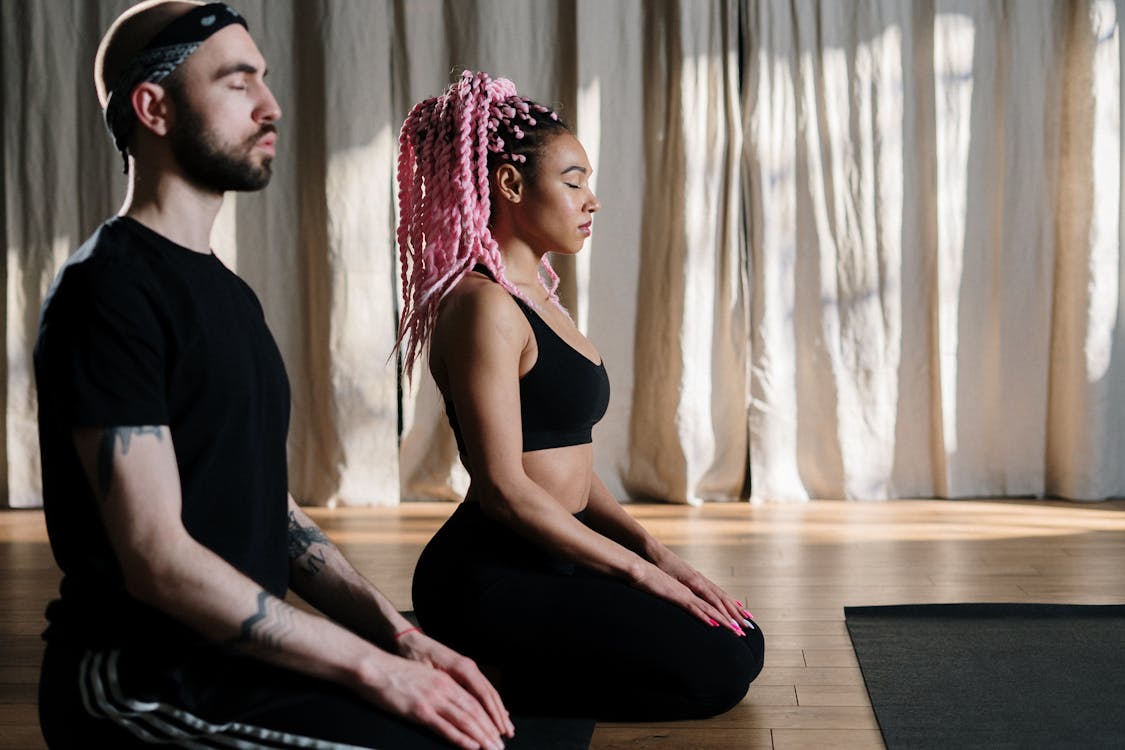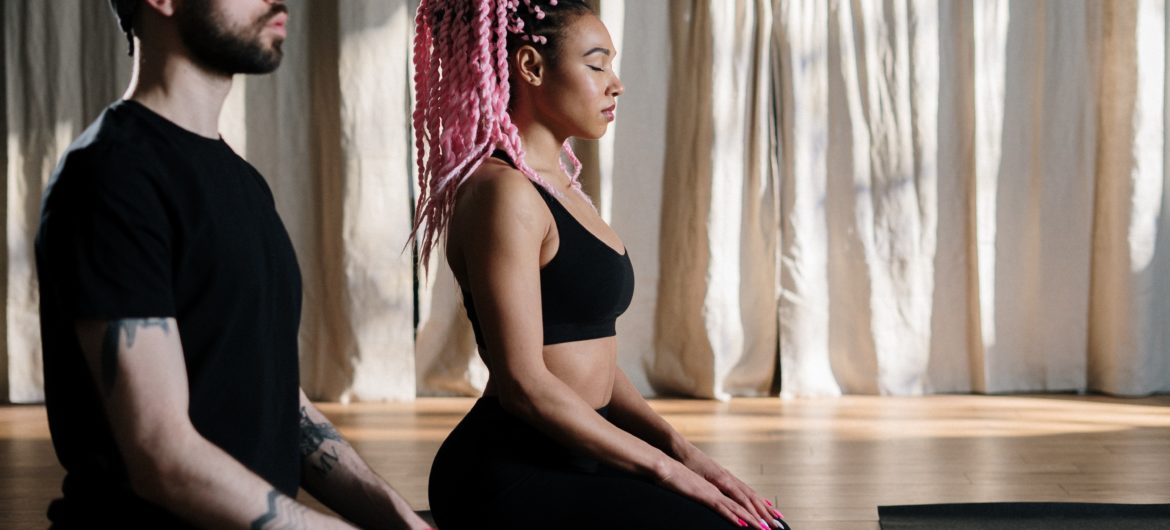While ‘mindfulness’ was once a term only known by devoted yoga fans, the form of meditation has grown in popularity in recent years.
Mindfulness involves sitting silently and focusing on your thoughts in the present moment and is said to help reduce anxiety, stress and depression.
Now, a study has warned that these mental health benefits don’t work for everyone.
Researchers from the University of Cambridge say that we shouldn’t assume mindfulness works for everyone, and highlight that exercise may be just as effective for some.
Mindfulness involves sitting silently and focusing on your thoughts, sounds and sensations in the present moment.
It is often touted as a universal tool for boosting mental wellbeing by reducing stress, anxiety and depression.
Randomised control trials (RCT) have been conducted around the world to determine whether this is the case, but results have varied.
Now, researchers at the University of Cambridge have reviewed these studies to provide more ‘robust conclusions’.
Dr Julieta Galante said: ‘For the average person and setting, practising mindfulness appears to be better than doing nothing for improving our mental health, particularly when it comes to depression, anxiety and psychological distress.
‘But we shouldn’t assume that it works for everyone, everywhere.’
People often practice mindfulness in community settings such as universities, workplaces or private courses.
The researchers identified 136 RCTs, which looked at whether mindfulness in a community setting promotes mental health.
These trials included 11,605 participants aged 18 to 73 years from 29 countries, more than three-quarters (77 per cent) of whom were women.
The researchers found in most cases mindfulness did indeed reduce anxiety, stress and depression compared with doing nothing.
But in more than one in 20 trial settings, it did not work.
Dr Galante said: ‘Mindfulness training in the community needs to be implemented with care.
‘Community mindfulness courses should be just one option among others, and the range of effects should be researched as courses are implemented in new settings.’
It could also be that meditation works best for people who are highly strung, to begin with.

Picture by Elly Fairytale for Pexels
Dr Galante said: ‘The courses that work best maybe those aimed at people who are most stressed or in stressful situations, for example health workers, as they appear to see the biggest benefit.’
When compared with other feel-good activities such as exercise, mindfulness was no more effective, the researchers also found.
Co-author professor Peter Jones said: ‘While mindfulness is often better than taking no action, we found that there may be other effective ways of improving our mental health and wellbeing, such as exercise.
‘In many cases, these may prove to be more suitable alternatives if they are more effective, culturally more acceptable or are more feasible or cost-effective to implement. The good news is that there are now more options.’
The number of mindfulness classes on offer has jumped significantly over the past few years and particularly since the beginning of the COVID-19 pandemic.
While the effectiveness of online courses has yet to be determined, preliminary research suggests they work, despite the lack of direct contact.
Dr Galante said: ‘If the effects of online mindfulness courses vary as widely according to the setting as their offline counterparts, then the lack of human support they offer could cause potential problems.
‘We need more research before we can be confident about their effectiveness and safety.’
Other factors could be responsible for the variation in success between settings, the researchers caution.
For example, where and by whom the courses are implemented or who they targeted towards, is likely to have an impact.
Dr Galante said: ‘The techniques and frameworks taught in mindfulness have rich and diverse backgrounds, from early Buddhist psychology and meditation through to cognitive neuroscience and participatory medicine.
‘The interplay between all of these different factors can be expected to influence how effective a programme is.’

Photo by cottonbro from Pexels
The findings were published in the journal PLOS Medicine.




